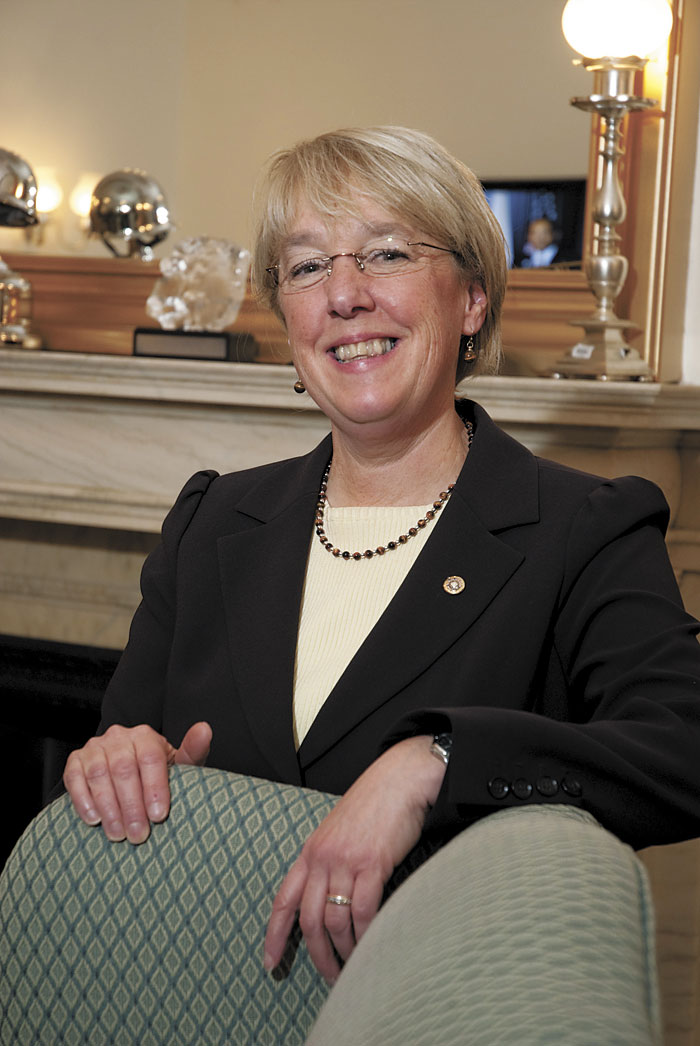Peter Steinbrueck has been gone from City Hall for barely three months, and already he’s looking back—for a job.
He’d like the city to hire him as a consultant on the civic square development, the transformation of the former Public Safety Building a block west of City Hall into office, retail and restaurant space, and a 30,000-square-foot public plaza. It’s the last piece of the city’s civic center plan, which included acquiring the Municipal Tower, building a new Justice Center and constructing a new City Hall, something that Steinbrueck worked on for nearly a decade as a council member and most recently as chairman of the Urban Development and Planning Committee.
And if the city doesn’t take him up on his offer for that project, Steinbrueck says he’ll try for something else: “I intend to get on the city’s consultant’s roster and go after [requests for proposals],” he says. “I’m in business for myself now. I have to hustle for it.”
Steinbrueck is indeed in business for himself (in January he launched Steinbrueck Urban Strategies LLC), but this is both by design and by necessity. According to municipal ethics laws, for one year after leaving the city, the former council member can’t influence, or even interact, with the city or council on behalf of someone else if it relates to something he worked on during his tenure there. But these restrictions don’t apply if he is directly on the city’s payroll.
“You can’t assist anyone else in dealing with the city, but you can assist the city,” says Ethics and Elections Commission Executive Director Wayne Barnett. “The idea is that you’re still playing for the same team.”
Same team or not, Steinbrueck may face a tough go of it with some of his former colleagues.
“While it might be legal and not a violation of ethics code, I just don’t feel real comfortable with a recent city employee, particularly a council member, getting a contract to advise us. To come back and work for the city such a short time after they’ve left office,” says council member Tom Rasmussen. “While I’m sure he has a lot of expertise, I personally don’t feel comfortable.”
When Steinbrueck announced last year he was leaving office, he said he was doing so to fight against the Alaskan Way Viaduct, new or otherwise, on the waterfront. He wanted to help organize community efforts to ensure the elevated freeway is torn down and that surface streets and mass transit are improved to take its place.
But even if that work’s volunteer, it may be difficult for him to navigate during his first year out of office because the rules apply whether you’re getting paid or not. So he can participate as an individual, but he can’t in any way assist other stakeholders in their dealings with the city, even if that means something seemingly innocuous such as revealing information about the leanings of his former colleagues on the council.
Of course the difference from participating and assisting is one big grey morass. Says Barnett: “Where he goes from Peter Steinbrueck interested citizen to Peter Steinbrueck spokesperson is a difficult line to draw.”
Some of those lines have already been drawn in Steinbrueck’s newest gig: serving as an ambassador of sorts for the expansion-minded Children’s Hospital in its dealings with the surrounding Laurelhurst neighborhood.
Ethics commissioners voted in February to give Steinbrueck the go-ahead as long as he walks that fine line between assisting the various interests with each other and assisting them with the city.
So far so good, says Laurelhurst Community Council president Jeannie Hale. “We’ll continue to do the best we can to work with him. If issues surface where there’s conflict, you can bet we’ll be in contact with the ethics commission.”
Though glad to be working for Children’s, Steinbrueck says the ethics rules have made it tough for him to find work, period. “I’m basically prohibited from doing most of the things I have the skills and experience to do,” he says, adding that he wasn’t aware of the full reach of the restrictions before he left office.
Steinbrueck, an architect by trade who just wrapped up teaching an urban-sustainability class at the University of Washington, could of course get a job at a private firm. But he doesn’t want to. “My interests have extended beyond building to the design of cities,” he says.
So Steinbrueck’s looking for work in eastern Washington and California. This week he gave a speech to policy makers and planners in Philadelphia on reinvigorating older communities by tearing down freeways. Though widely rumored to be eyeing a run for mayor in 2009, Steinbrueck says he’s putting off any thought about running for office, “until further notice.”





